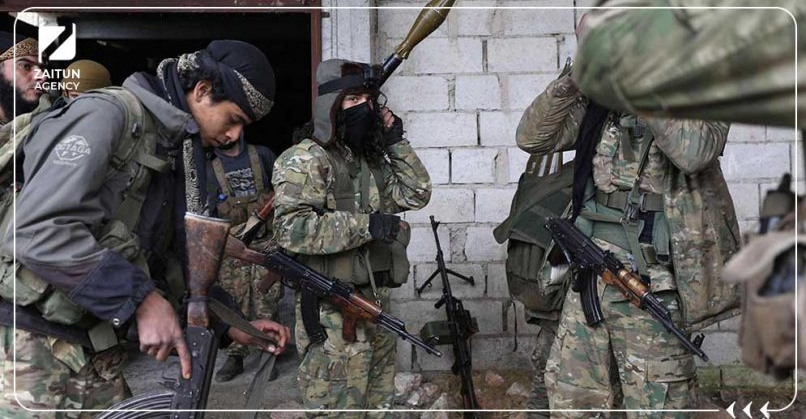On Wednesday, President Bashar al-Assad issued a legislative decree granting a general amnesty for internal and external desertion crimes committed before the 25th of January.
Under Article 1 of the Decree, a general amnesty was provided for crimes committed relating to internal escape offenses, as defined under Article 100 of the Military Penal Code of Legislative Decree No. 61 of 1950 and its amendments. The amnesty also covered offenses relating to external escape crime under article 101 of the same Act.
The same Article stated that its provisions did not include those who were fugitives of justice unless they surrendered within three months for internal escape and four months for external escape.
Fayez al-Ahmad, chairman of the National Security Committee in the People’s Assembly, said the decree encourages those fleeing military service to return and serve in the armed forces. He stressed that with the issuance of this decree, the scope has become open to those deserters who have been lured under certain circumstances.
Read Also: Assassination of Senior Officers in Coastal Syria: Struggle for Power?
He pointed out that the state is opening its doors to its children, advising the fugitives to return and settle their situation quickly so that we will all contribute to the reconstruction of what was destroyed by terrorism. He pointed out that Syria is moving towards victory thanks to the sacrifices of our armed forces and great martyrs in order to eliminate gangs and Takfiri groups.
Opposition Skeptical
Lawyer Abdel Nasser al-Hoshan expressed skepticism about the “trap” of the new presidential pardon.
He said that the crime of desertion in Syrian military law is not limited to Articles 100 and 101, which relate to the crime of internal and external escape. There are other types of escape: “fleeing to the enemy, fleeing in front of the enemy –stipulated in Article 102–, fleeing by conspiracy, and fleeing in wartime –provided for by Article 103 of the Military Penal Code”.
He explained that the penalty for fleeing to the enemy is death, but to escape in front of the enemy is punishable by life imprisonment. If the fugitive is an officer, he shall be punished with hard labor for life and shall be sentenced to expulsion in all cases.
Most of the defectors are soldiers and officers present in Turkey or have been there at some point before they have sought refuge in other countries. The regime considers Turkey a hostile state as we hear, see, and read in all its media, even in its international correspondence with the United Nations and the international community.
This also applies to soldiers and officers affiliated with the National Army and other military factions.
Hoshan warned the military and dissident officers not to think or respond to the temptations or assurances offered by the regime to turn themselves in, thinking that this amnesty would protect them and give them safety. ”
This article was translated and edited by The Syrian Observer. The Syrian Observer has not verified the content of this story. Responsibility for the information and views set out in this article lies entirely with the author.


